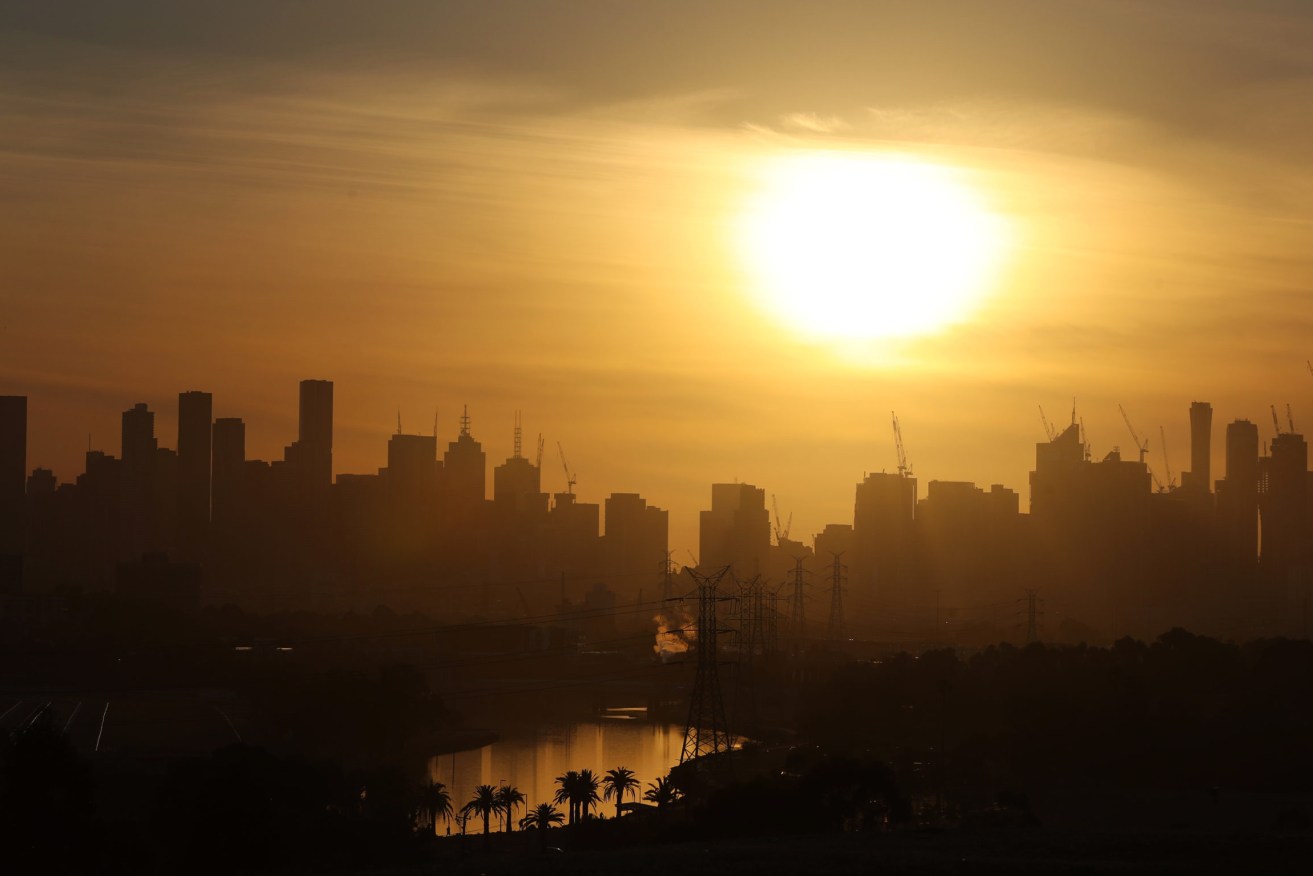Australia warming more than rest of world: BoM
Australia’s temperatures are increasing more than the global average, the nation’s weather bureau says.

Photo: AAP/David Crosling
Bureau of Meteorology head of climate monitoring Karl Braganza said Australia had warmed by about 1.4 degrees Celsius, while the rest of the world had increased by 1.1C.
“Australia warms slightly more than the global average,” Dr Braganza told a Senate estimates committee in Canberra on Monday.
When temperatures across the rest of the world increase by 3.4C on average – which was estimated in a recent report – Australia is projected to be closer to 4C, he said.
BOM chief Andrew Johnson said Australia was expected to become drier and warmer, which would see the risk of severe fire weather continue.
It comes as an independent analysis of weather data shows Australian summers are getting longer and winters shorter.
The Australia Institute has studied two decades worth of BOM data for the nation’s cities, comparing it to a benchmark from the mid-20th century.
The think-tank is calling on the federal government to boost its emissions reduction plan to prevent more climate change related warming.
The study found that summer temperatures are continuing for 31 days longer than the benchmark, while winters are 23 days shorter.
Australia Institute’s climate and energy director Richie Merzian says having more extreme heat events puts the public at risk and hurts the economy.
“The Australian government’s current emission reduction targets are aligned with three to four degrees of warming,” he said.
“Which leaves young Australians having ever-lengthening summers with significant consequences.”
The federal government has committed to the Paris agreement, which aims for a 26 to 28 per cent reduction on 2005 greenhouse gas emissions levels by 2030.
The agreement also includes a pact to achieve net zero emissions in the second half of the century.
Labor has committed to net zero emissions by 2050, but hasn’t revealed if its 2030 goal would be more ambitious than what the Paris target stipulates.
-AAP
Send us an email, making it clear which story you’re commenting on and including your full name (required for publication) and phone number (only for verification purposes). Please put “Reader views” in the subject.
We’ll publish the best comments in a regular “Reader Views” post. Your comments can be brief, or we can accept up to 350 words, or thereabouts.




